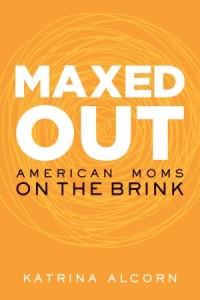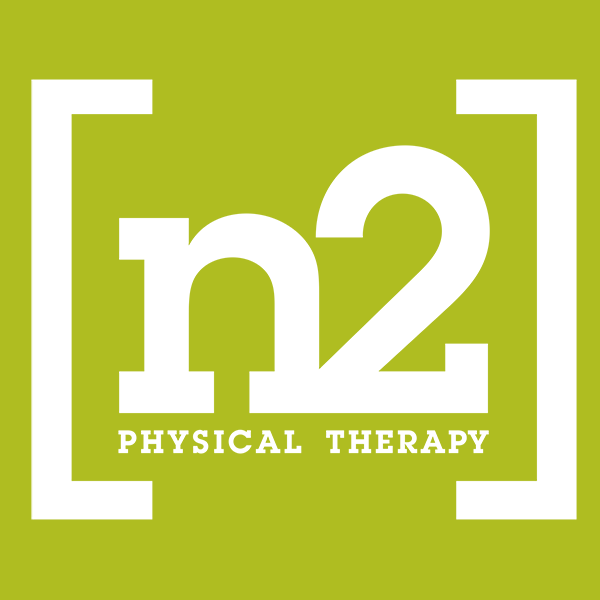Welcome back to The Brilliant Book Club; I was particularly excited about this month’s book, Maxed Out, by Katrina Alcorn. If you read along with us, we hope you enjoyed it and can’t wait to hear your thoughts! If you haven’t picked up a copy, perhaps our posts today will inspire you to read it.
 Maxed Out tells the story of Alcorn’s struggle to find a work-family balance; we follow her career journey as she moves from freelance work to a position of power that brings longer hours, more demands, and a lot more pressure. When the book begins, Alcorn’s daughter is an infant and her stepdaughter is in preschool; as her job becomes more hectic and intense, she has another child- a son.
Maxed Out tells the story of Alcorn’s struggle to find a work-family balance; we follow her career journey as she moves from freelance work to a position of power that brings longer hours, more demands, and a lot more pressure. When the book begins, Alcorn’s daughter is an infant and her stepdaughter is in preschool; as her job becomes more hectic and intense, she has another child- a son.
Eventually Alcorn has a breakdown of sorts; her anxiety simply became unmanageable. After one pivotal work meeting, she realizes that she is no longer able to function as a working mom of three in a position of power- dealing with meetings, high-pressure projects, challenging clients, and handling colleagues with strong personalities.
According to Alcorn,
The American Dream tells us if we just work hard enough, we’ll get what we want…. The problem boils down to this: Most jobs do not accommodate people who have children.
The argument that there is something inherently wrong with the system is right on- but in my opinion it’s more than just a case of bad policies or an unfair system. The problem isn’t just your company’s work schedule, sick leave policy, or salary arrangement. It’s something more subtle, an implied attitude that affects all women, working or not. The problem is an amalgam of the mommy track, the mommy wars, opting out, and having it all.
Which is why I believe that even part-time working moms and stay at home moms can suffer from the epidemic of being “maxed out.”
- The self-employed person who is painfully aware that whenever she protects her family time and schedules vacations, she does not get paid.
- The SAHM who guilts herself into volunteering for every PTA carnival, book festival, and room mom assignment because she thinks it is “her job.”
- The mom who beats herself up whenever she takes it easy and doesn’t aggressively pursue more freelancing opportunities.
- The mother of four who tries to fit in classes, playdates, doctors, and therapy appointments for her children, all the while maintaining an immaculate home and preparing healthy, organic meals. The mother who makes $0/hour and gets no time off- ever.
Aren’t these women, even though they may not be climbing the corporate ladder, still affected by this pervasive mentality that is so harmful to mothers? I say yes.
Though I do not work full-time, I could relate to many of Alcorn’s feelings. I work part-time teaching early childhood music classes, and I also work from home doing freelance writing and blogging. I experienced my own “maxed out” morning earlier this week. Three days a week I take my toddler to an in-home Montessori center before I head to work, but this particular day was one in which I brought her along to work with me. While I teach two music classes, Sophie plays in the on-site childcare room down the hall. Mornings almost always undo me, and I run around frazzled trying to get everybody ready for school, childcare, and work. Making sure snacks have been packed, shoes have been located, breakfast has been eaten, and at the bottom of the list, of course, is making sure I am somewhat presentable.
I gathered our belongings and loaded the girls in the car with a few short minutes to spare. My toddler and I dropped my second grader off at the bus stop and then drove to the recreation center; I filled the 20-minute drive answering the same repetitive questions about where the dump truck went and why the sheep is in the barn. We pulled up in the parking lot, and the race began; for some reason, these morning transitions always make me feel discombobulated. Taking Sophie to the public restroom, cleaning my instruments before class begins, gathering the change of clothes, snacks, and sippy cup for the childcare room… I always wind up rushing after I drop her off and arriving to a roomful of parents and toddlers who are ready to begin class.
This particular morning, Sophie threw me a curveball and became hysterical when I dropped her off at childcare; normally, she loves playing there. The staff are warm and friendly, there is a spacious room well-stocked with novel toys, and she can sit at a low table and eat snacks with the other children if she chooses. Who knows what caused the atypical reaction, but I stood in the doorway, heart pounding, knowing that I had no choice but to leave my screaming, sobbing baby and head to my classroom.
The room full of noisy toddlers made me feel even more uptight than usual, and I worried that the childcare staff would bring my crying child to me at any moment. My one and two year old students that morning, as though sensing my anxiety, were more energetic than usual, and the classroom balance was quickly tipping towards chaos.
Why do I have to do this? I thought frantically. I hate having to work and be a parent at the same time. I wish I could just quit.
And some days I do wish I could stop teaching and stay home. I consider my writing and blogging, and how much satisfaction it brings me. The creative outlet, the pure therapy of it all, combined with connecting with my fellow bloggers, fills me up immensely. But the stress of redesigning websites, returning emails, and preparing for–and now promoting– the publication of my new book, The HerStories Project, quickly adds up and often feels like a full-time job.
But it’s a job that I love. So where does that leave me? Where does it leave all moms who aspire to either work or pursue passions and interests outside their families? Are we to give up our ambitions in order to retain our sanity?
How Does Physiology Play a Role?
Near the end of the book, Alcorn provides a physiological explanation for the anxiety our bodies experience when we are “maxed out.” This chapter resonated with me even more than the rest of her story- it sheds light on how the nervous system factors into our stress levels. Alcorn explains how and why we experience these reactions, and more importantly- what we can do about it.
She discusses the sympathetic and parasympathetic nervous systems; I have always found this to be one of the most fascinating operations of the human body. Our sympathetic nervous system is the side of this duo that is often associated with “fight or flight,” and the parasympathetic nervous system balances this out by slowing down our rhythms, helping us to digest, sleep, and procreate. As Alcorn so succinctly states. “Unfortunately, the juggling act of working and parenting can put you in a perpetual state of fight or flight.”
There was one passage that bowled me over with its wisdom- I whipped out my highlighter and even wrote the word “YES!” at the top of the page.
Think of how we live: hunching over computers and smart phones, racing back and forth between the office and home, gulping down our food, using caffeine and sleeping pills to turn ourselves on and off at will. Many of us live almost exclusively in the realm of the mind. We’re always thinking about what we’ve done or what we’re about to do. We are never fully in our bodies. “
Wow. I don’t even have an office, per se, but I still relate to this.
She offers a few practical strategies to combat this type of stress. Simply put, we can do three things to help ourselves out:
- Sweat. Get some exercise and rid yourself of those stress hormones. For me, the combination of yoga, working our whenever possible, and meditation does the trick.
- Eat. Eat small amounts of good food–not overprocessed– throughout the day.
- Sleep. During times of stress, sleep becomes even more important. It helps repair your body at a cellular level and allows you to process what happened to you during the day.
Finding a Work-Family Balance Without the Animosity
This final chapter of the book helped me to realize why Maxed Out resonated with me, even though I do not work a demanding full-time job. Maybe, rather than it being just about “the system,” or the questionable choices of a high-power career woman trying to do too much, being maxed out is also about our individual temperaments as mothers, and maybe even our personality types.We all have different limits- I’m sure there are moms working in positions similar to Alcorn’s who are barely batting an eye. That’s great for them. And I’m sure there are SAHMs who feel they can barely keep up with the demands of raising children and maintaing a home.
I am fairly transparent about the fact that I am a highly sensitive person. Combine that with my personality type (ENFJ, if you’re interested.) and I may be more susceptible than others to maxing out. I’m sure that many people perceive these traits to be liabilities or weaknesses in the work force. Clearly, I could not blame my own level of job stress on an inflexible employer or lack of time off- I am my own boss. Arguably, the problem is me- or at least, the fact that my family actually needs my income and I have to work. But pointing fingers at women for being weak, sensitive, anxious, or struggling to find the right boundaries in order to preserve their sanity is just another symptom of the competitive, woman-against-woman, “Mommy wars” culture in which we live.
I feel that Alcorn makes a compelling argument about changes that should be made to cultural expectations, but this is also her story. It’s about her- one unique person sharing her own struggle. While many of us may not connect with the actual circumstances, I’m betting that many mothers can relate to the underlying emotions.
Do you feel Maxed Out? Why or why not? How do you achieve balance and preserve your sanity?
Read what the other Brilliant Book Club bloggers have to say about Maxed Out. As a teaser, I can promise you there several diverse opinions and perspectives on this book!
Lauren of Omnimom- Are You Maxed Out?
Jessica of School of Smock- In Fear of Maxing Out: And Why I’ll Never Be Scandal’s Olivia Pope
Sarah of Left Brain Buddha- Our Bodies, Ourselves, and the Personal is Political
Deb of Urban Moo Cow- Everyone Has Limits, Not Everyone Has Choices












Interesting. You know I didn’t like the book, but I do appreciate your first point about being maxed out even if you are not a full-time working mom. That was something I thought about but ultimately didn’t write about. That a lot of it is personality and personal expectations, above and beyond the institutional barriers we face. Lauren also touched upon this — that there are women in the UK who feel “maxed out” despite the excellent public system in place there. The time I came closest to comparing to her situation was actually before H was even a twinkle in my eye. I feel like the book was oversimplified and overgeneralized to the point of being ineffective. Sigh. (ps – INTJ)
INTJ here too, my friend. That explains it ;).
Indeed. Ha!
So interesting and relevant! I almost always feel maxed out, but as a SAHM, I feel guilty for feeling so. I’m an INFJ, so similar to you, except that social interaction (even with my children) wears me out. I really appreciate your take on this book. Thanks for sharing.
This was interesting Stephanie. I agree with you that you don’t need to be working full or even part time to feel maxed out. In my opinion, it occurs mainly because of the competitiveness that exists in western societies – even SAHMs think they have to keep up or be better than others. I’m reading a book just now called “The Compassionate Mind,” by Paul Gilbert, a British psychologist. I think you’d like it because he explains a lot about the evolution of the human brain and how means we have physiological reactions we don’t choose to have – and how this competitiveness is part of the flight or fight reaction. But he also explains how we can make changes and feel more able to cope by learning to be compassionate towards ourselves and others.
That has certainly been my experience. When my kids were little I was coping with a premature baby in long-term hospital and a toddler at home I definitely felt maxed out, and this continued for some time. I’m not convinced by Alcorn’s suggested strategies for dealing with stress, though exercise it good. Most people who feel maxed out would love to sleep, but often can’t manage it! Like you, I find yoga and meditation helps, although learning to let go of stressful beliefs and emotions made the biggest difference.
Nice angle, Stephanie, I took a lot from this. The question of what it is that makes us feel maxed out or not is key. And the answer is not the same for everybody, which is why it is a such a difficult topic, the soil in which the Mommy Wars grow. Part of the power of Alcorn’s story, to me, is the idea of being pulled in two directions. I think this is harrowing, from a psychological point of view. Full-time mothers can be pushed to capacity, a demanding full-time job can do the same. When you put the two things together – so different from one another, emotionally and practically – it jumps to a whole new level. Which also explains why it doesn’t happen to fathers, on the whole. I’ll generalize and say that fatherhood is not as consuming to men as motherhood is to women. There were several times in ‘Maxed Out’, where she would say something about an inability to combine work and family that read as uniquely female to me. Not to mention the fact that her husband worked a full-time job *and* managed the kids when she was recovering from her breakdown, with no ill effect that she mentions. I guess my point is I consider the way SAHMs max out – or the way anybody maxes out from one pursuit – to be of a different concern from Alcorn’s.
I loved the details of this post for the same reason that I loved the everyday details in the book: you get a glimpse of the person and the joys, annoyances, and internal battles that she faces all day long. I think I am a fairly sensitive person too, prone to worrying and being anxious and overthinking every choice. It’s funny; the first time that I read the book I focused — as a sociologist, researcher, feminist — on her critique of how our national policies do not meet the needs of working families. I found her personal story very compelling, but didn’t relate it as much to my own life. It’s almost as if I’ve been trained to see personality differences and temperament as “cop outs” for explaining people’s struggles. Now, months later, I related to the book much the same way that you did: realizing that my own personality style is very different from hers but the book still resonated with me deeply for many other reasons.
I definitely feel like moms of all kinds are totally maxed out. And it is exhausting. Something needs to give. I am definitely going to check out this book! :)-Ashley
I am frequently maxed out. The pull of work versus parenthood is just too much sometimes. Then I realized that you cannot have it all. It is simply impossible to put 100% effort into every aspect of your life. even if you did not have children, you would not be able to be a ballerina and a CEO. Just not enough hours in the day. I think working mom/stay at home/part time whatever you are we have to give one another slack.
To me it all can feel so scatter shot, I think it would be easier to be maxed out in one direction, say, one really demanding job. But with so many different things pulling at our attention, I feel like I can never look at one thing and say, wow, yeah that one is really too much. They don’t seem that overwhelming on their own, but the pile-up, the ping-pong balls in the brain, that’s where I max out.
Jessica, that is so true. On their own these things don’t seem like so much, but then something doesn’t go as planned and it messes up the whole balance. I rarely leave room/time for things to go wrong (they always do) because I take on too much and am “maxed out!” I want it all. And it’s killing me.
Yes, yes yes. I so agree about keeping active and healthy ~ those things go such a long way toward our mental state! And I agree that we can “max out” over a lot of situations – like the stay at home mom whose husband goes back to work when the baby is 3 days old! And your point about how it fits with our temperaments is so important – I absolutely know I don’t have the temperament to be a SAHM {though as my kids get older, the option becomes more appealing, lol}.
I need to read this book. I frequently feel maxed out. Especially during the holidays! I would add something that has helped me TREMENDOUSLY is learning deep breathing exercises and doing them daily. I’m sure you’re familiar with this since you teach music, but seriously, it helps so much!!
I often feel maxed out and then I think about all the moms who work full time and I feel guilty for feeling that way because I stay at home. So, of course, I love your point that all moms – full time working, part time working, and staying at home – are susceptible to the “maxed out” mentality. We are all doing everything we can and we definitely need to do more supporting and less “war-ing.”
I realize I’m missing the point of the entire post and that’s okay, but the ONLY thing I kept thinking while reading was HOW does Steph manage two kids, a job, a house, a blog, a huge project, AND keep up with her reading?! YOI! You’re my hero 🙂
I relate to this, even though I’m not a mom. See, I’m THINKING about becoming a mom (kind of a lot lately) though, and I know I am very sensitive to stress, as well as no stranger to the nervous breakdown. I will need to work as we can’t survive on one income, so I am terrified of this dual-role prospect. Thank you for your thoughts on this book! I wish we had better answers than policy, because a lot of it is just cultural expectations. Sigh.
BTW – INFJ here. 😉
Excellent, excellent, excellent! I loved this! You were right, I could totally relate to this. I especially enjoyed the part about different moms having different limits. There are certain things that push me over the edge. Basically, if I have a deadline that I need to meet for someone or if I have to interact with people I’m not comfortable around, I get really, really stressed out. Like panicky sometimes. It comes down to how I care too much about what others think of me. I was in tears the other day because I had to get my son to a meeting at our local school for some testing. In my head I’m convinced they all hate me and think I’m a moron because I homeschool – which I’m sure (I hope) isn’t true. So then after waiting in the school office for 20 minutes for the meeting, we were told we were at the wrong school. I had indeed forgotten which school to go to. I WAS a moron! I cried all the way to the second school. This was the second time I had screwed up the meeting time or location with this teacher. Now, I know I’m not a moron and I just made a mistake, but the fretting over what these teachers think about me, just about kills me. I can’t imagine how I would be if my kids WERE in school – I might cry everyday.
This actually made me cry a little bit because I feel like you get me. Always feeling guilty. Like I’m not enough. When I’m at work, I realize that I forgot to share a post, write something for FTSF, email Tucker’s teacher…and yet, sitting here, doing what I want to do (read you), I feel the minutes ticking by…minutes that I am missing from the office this week due to a short day/preschool lunch yesterday…etc. Thank you for writing this. I need to exercise more.